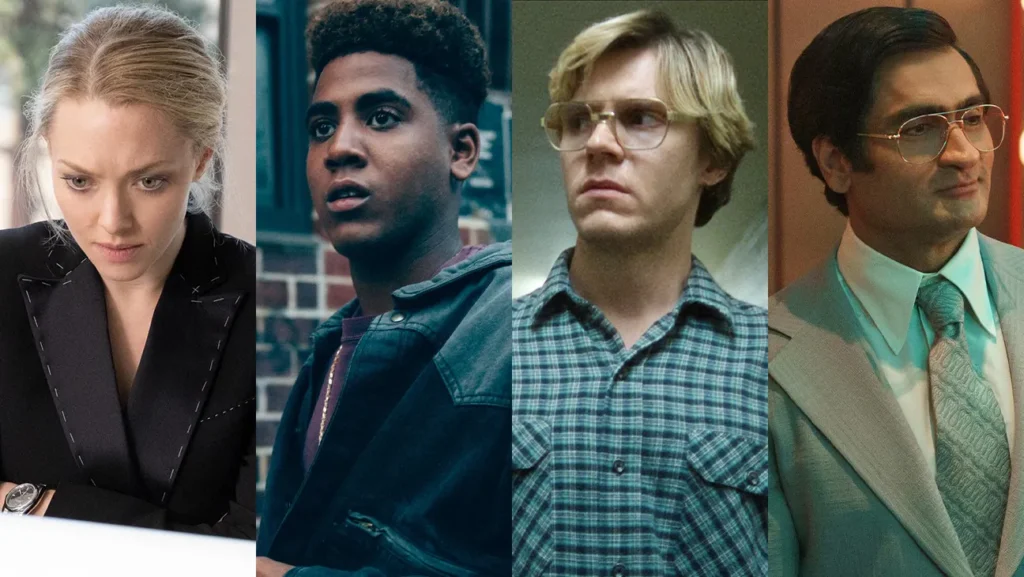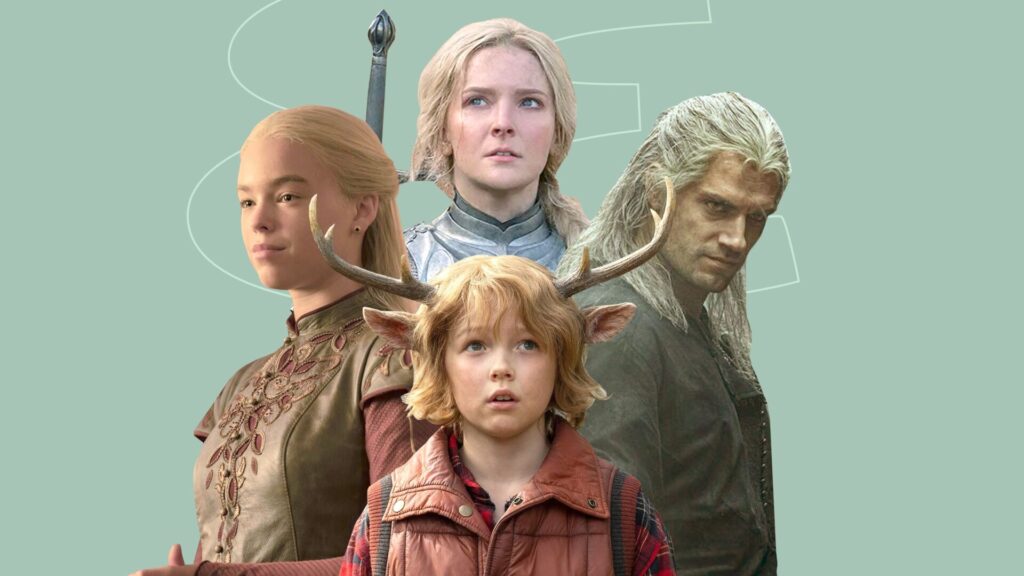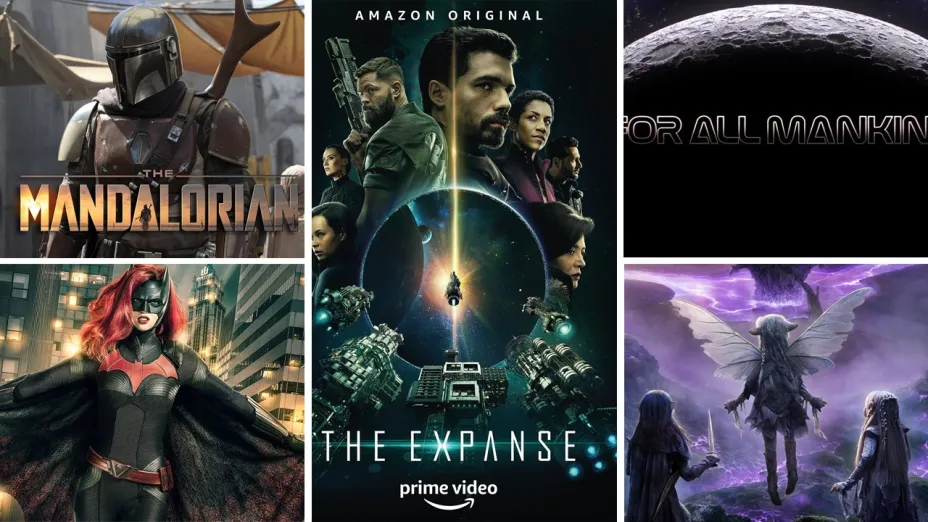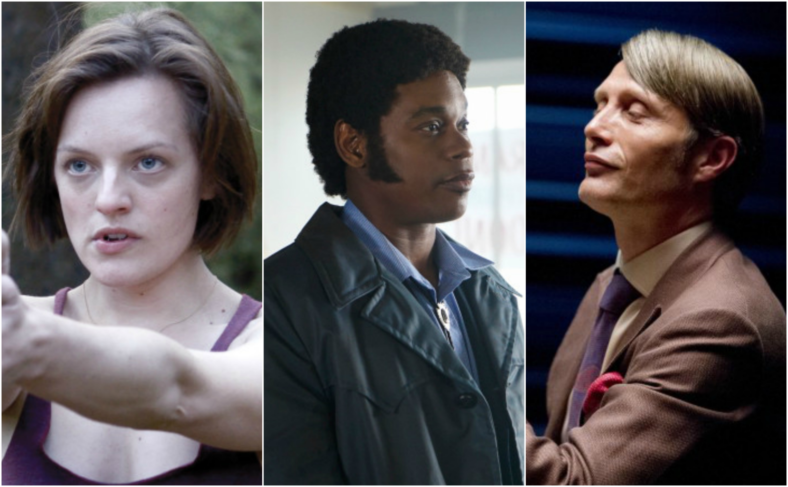The landscape of entertainment has always been shaped by the ebb and flow of various genres, each offering its own unique blend of storytelling, themes, and characters. From the gritty streets of crime dramas to the enchanting realms of fantasy epics, audiences have been captivated by the diverse array of narratives that these genres have to offer. In this article, we’ll delve into the trends that define these two popular genres, exploring what makes them tick and why they continue to resonate with audiences around the world.
Crime Dramas: Unraveling the Mysteries of the Human Psyche

Crime dramas have long held a prominent place in the entertainment industry, offering viewers a glimpse into the darker side of human nature. From classic whodunits to gritty police procedurals, this genre has evolved to encompass a wide range of storytelling styles and themes. One of the key factors driving the popularity of crime dramas is their ability to tap into universal themes such as justice, morality, and the pursuit of truth.
At the heart of every compelling crime drama lies a mystery waiting to be solved. Whether it’s a murder investigation or a complex heist, audiences are drawn to the thrill of unraveling the clues and piecing together the puzzle alongside the characters. This sense of engagement and intrigue keeps viewers on the edge of their seats, eagerly awaiting each new twist and turn in the plot.
In addition to their gripping narratives, crime dramas often explore the complexities of the human psyche, delving into the motivations behind criminal behavior and the moral dilemmas faced by law enforcement officers. This psychological depth adds another layer of intrigue to the genre, prompting viewers to question their own perceptions of right and wrong.
Fantasy Epics: A Journey into the Imagination
Fantasy epics transport audiences to fantastical realms filled with magic, adventure, and larger-than-life characters. From the epic battles of Middle-earth to the political intrigue of Westeros, this genre offers a boundless canvas for storytellers to unleash their creativity and imagination. At the heart of every fantasy epic lies a sense of wonder and escapism, allowing viewers to leave behind the constraints of reality and immerse themselves in a world of endless possibilities.
One of the defining characteristics of fantasy epics is their richly detailed world-building. From the geography of the land to the intricacies of its history and culture, every aspect of the fictional universe is meticulously crafted to create a fully immersive experience for the audience. This attention to detail not only enhances the believability of the setting but also serves to enrich the narrative with depth and complexity.
In addition to their fantastical elements, fantasy epics often explore universal themes such as power, destiny, and the struggle between good and evil. By grounding these larger-than-life stories in relatable themes and emotions, storytellers are able to create narratives that resonate with audiences on a deeply personal level. Whether it’s the coming-of-age journey of a young hero or the epic clash between rival kingdoms, fantasy epics have a timeless quality that transcends the boundaries of culture and time.
Exploring Character Dynamics in Crime Dramas
Within the realm of crime dramas, the dynamics between characters play a pivotal role in driving the narrative forward and keeping audiences engaged. From the enigmatic detective to the cunning villain, each character brings their own motivations, flaws, and complexities to the story. One of the key elements that sets crime dramas apart is the intricate web of relationships that develop between characters as they navigate the twists and turns of the plot.
The dynamic between the protagonist and antagonist is often central to the conflict in crime dramas, with each character serving as a foil to the other. Whether it’s the cat-and-mouse game between a detective and a serial killer or the tense rivalry between rival gangs, these interpersonal dynamics add depth and tension to the storyline. By exploring the complex motivations and emotions driving these characters, crime dramas offer a nuanced portrayal of the human condition.
In addition to the central characters, crime dramas also feature a diverse cast of supporting players, each with their own role to play in the unfolding drama. From loyal sidekicks to morally ambiguous informants, these characters help to flesh out the world of the story and provide additional layers of intrigue. By weaving together the various threads of the narrative, crime dramas create a rich tapestry of personalities and relationships that keep viewers guessing until the very end. In this way, an excellent achievement is created, with which after a hard day and with excellent recovery wear that will remove the accumulated pain and stress, you can enjoy alone or with your friends, investigating and getting involved in solving the case.
The Evolution of Magic Systems in Fantasy Epics

Magic is a cornerstone of the fantasy genre, offering storytellers a limitless wellspring of creativity and wonder to draw upon. In fantasy epics, magic systems play a crucial role in shaping the world of the story and defining the rules that govern its fantastical elements. Over the years, the portrayal of magic in fantasy fiction has evolved significantly, with authors and creators continuously pushing the boundaries of what is possible within the genre.
One of the key trends in the evolution of magic systems is a move towards greater internal consistency and logic. In early fantasy works, magic often served as a plot device to conveniently solve problems or advance the storyline. However, modern fantasy epics place a greater emphasis on developing coherent systems of magic that adhere to their own set of rules and principles. By establishing clear limitations and consequences for the use of magic, storytellers are able to create more tension and conflict within the narrative. Magic is not the solution to everything, thus making the characters from these works closer to ordinary people, but something that has an effect almost like magic is the increasingly popular Korean skincare that will make you feel more beautiful and younger by making a significant change in your routine.
Another trend in the portrayal of magic in fantasy epics is a focus on its cultural and societal implications. In many fantasy worlds, magic is not simply a tool wielded by individuals but a fundamental aspect of the society in which they live. From the role of magic users in politics and religion to the ways in which magic shapes the everyday lives of ordinary people, fantasy epics explore the far-reaching consequences of magic on the world around them. We would like to be able to rely on magic in our everyday lives, but since this is not the case, we can rely on professionals in their jobs, and in case we are done with big jobs, home redesigns, renovations, or similar tasks that leave a lot of waste behind, we can count on great junk removal in Philadelphia PA to take care of it.
Breaking Gender Stereotypes in Genre Fiction
Genre fiction has long been criticized for perpetuating gender stereotypes and tropes, particularly in the portrayal of female characters. However, in recent years, there has been a notable shift towards more nuanced and empowering representations of gender in crime dramas and fantasy epics. From complex female protagonists to LGBTQ+ characters, storytellers are challenging traditional gender norms and redefining the roles that men and women play within these genres.
One of the ways in which genre fiction is breaking gender stereotypes is through the portrayal of strong and multidimensional female characters. Gone are the days of the damsel in distress or the femme fatale; instead, audiences are being introduced to women who are fully capable of holding their own in a male-dominated world. Whether it’s the fierce warrior princess leading her army into battle or the brilliant detective solving crimes with her keen intellect, these characters defy expectations and serve as powerful role models for viewers of all genders. Women are changing the paradigm of this film genre, where they can equally cope with the presentation of beauty as well as an assassin who will arrange her jewelry in a very suitable ring case and go on her mission.
In addition to empowering female characters, genre fiction is also challenging traditional notions of masculinity and femininity. Male protagonists are no longer confined to rigid stereotypes of strength and stoicism but are allowed to express vulnerability, compassion, and emotion. Similarly, female characters are breaking free from the constraints of traditional gender roles and embracing their agency and independence. By presenting a more diverse and inclusive range of gender identities and expressions, crime dramas and fantasy epics are reflecting the complexities of the real world and offering audiences a more authentic and relatable viewing experience. In excellent filmmaking courses, you will certainly learn much more about these possibilities and the things that are sought in today’s storytelling.
Exploring Moral Ambiguity in Genre Fiction
One of the hallmarks of genre fiction is its willingness to explore moral ambiguity and challenge conventional notions of right and wrong. In crime dramas and fantasy epics, the line between hero and villain is often blurred, with characters navigating shades of gray rather than clear-cut distinctions between good and evil. This moral complexity adds depth and richness to the storytelling, prompting audiences to question their own assumptions and beliefs. Viewers sink into their armchairs with excellent milk chocolate edibles while enjoying the suspense of such film productions, questioning themselves in the process.
At the heart of many crime dramas and fantasy epics is a central moral dilemma that forces characters to confront difficult choices and grapple with the consequences of their actions. Whether it’s a detective wrestling with the ethical implications of bending the rules to catch a killer or a hero facing the prospect of sacrificing everything for the greater good, these moments of moral conflict are what elevate genre fiction beyond mere escapism and into the realm of thought-provoking drama. Such cases are not only characteristic of the film, often in life we have to give and sacrifice a lot for the sake of some greater goal, but in order to perhaps correct all that and leave behind a valuable trace, you can look for excellent church architects who will do the blueprints for you cathedral according to your wish.
One of the key themes that emerges from the exploration of moral ambiguity in genre fiction is the notion of redemption and forgiveness. In many stories, characters are given the opportunity to atone for their past mistakes and seek redemption for their sins. Whether it’s through acts of self-sacrifice, reconciliation with loved ones, or a newfound commitment to justice, these moments of redemption offer hope and catharsis to both the characters and the audience. In order to possibly avoid such separation from close people and the creation of a gap that you would later fill, you can rely on the excellent advantages of e-sim whenever you are far away, on a trip, out of the country, because with it you will always have the possibility to be in contact with close people at home.
The Influence of Genre Fiction on Popular Culture
Genre fiction has long been a driving force in shaping popular culture, influencing everything from fashion and music to film and television. From iconic catchphrases to memorable costumes, crime dramas, and fantasy epics have left an indelible mark on the cultural landscape, permeating our collective consciousness and sparking conversations that extend far beyond the confines of the page or screen. This includes fascinating music that permeates all film works, bringing a special experience to them, and if you have some of the famous music lists from popular films, you can sell vinyl records for cash and make quick money.
One of the ways in which genre fiction has influenced popular culture is through the creation of iconic characters and archetypes that have become ingrained in the public consciousness. From the hard-boiled detective to the reluctant hero, these characters embody timeless themes and values that resonate with audiences across generations. Whether it’s Sherlock Holmes deducing clues with his razor-sharp intellect or Frodo Baggins embarking on a perilous journey to save Middle-earth, these characters have become symbols of courage, resilience, and hope. Their adventures serve to inspire many to persevere in their decisions, take big steps in their lives, and with a great combat clothing, engage in some physical activity to work on themselves and explore more.
In addition to iconic characters, genre fiction has also had a profound impact on the visual and aesthetic elements of popular culture. From the elaborate costumes and set designs of fantasy epics to the gritty urban landscapes of crime dramas, the visual language of genre fiction has inspired countless artists, designers, and filmmakers to create their own interpretations of these iconic worlds. Whether it’s the sleek cyberpunk aesthetic of “Blade Runner” or the whimsical steampunk stylings of “The Golden Compass,” genre fiction continues to push the boundaries of creativity and innovation in popular culture. If you are interested in redesigning your corner yourself so that it matches one of your favorite movies, look for an excellent remodeling contractor with whom you can create an interior design according to your wishes.
The Future of Genre Fiction: Trends and Predictions

As we look to the future, it’s clear that genre fiction will continue to evolve and adapt to reflect the changing tastes and sensibilities of audiences around the world. From the rise of diverse voices and perspectives to the increasing influence of technology and digital media, there are a number of trends and predictions that are shaping the future of crime dramas and fantasy epics. The internet service provider that manages IT services in San Antonio provides its users with an excellent internet with which they can explore all these trends and embark on new adventures and movements of this interesting genre.
One trend that is likely to continue shaping the future of genre fiction is the increasing diversification of storytellers and characters. As audiences demand more diverse and inclusive representation in their entertainment, creators are responding by telling stories that reflect a wider range of voices and experiences. Whether it’s through the introduction of LGBTQ+ characters, characters of color, or characters from marginalized communities, genre fiction is becoming more representative of the world we live in, enriching the storytelling landscape with new perspectives and insights. In order to succeed in the interpretation of all those interesting characters, the actors use professional and relaxing treatments in a luxury spa in Toronto, with which they always replenish their energy to continue these tiring filmings, doing their best to connect with their characters.
Another trend that is likely to impact the future of genre fiction is the growing influence of technology and digital media. From the rise of streaming services to the proliferation of virtual reality and augmented reality experiences, technology is opening up new possibilities for storytelling and audience engagement. Whether it’s through interactive storytelling experiences or immersive world-building, creators are finding innovative ways to harness the power of technology to create richer and more immersive storytelling experiences for audiences. Likewise, audiences are transitioning to entirely new ways of technology that provide movie watching on a whole new level, and if you decide to invest wisely in one of the comfortable homes in Boca Falls, you’ll have a luxurious and spacious space for a movie night with your family that everyone will enjoy.
Conclusion: Embracing the Power of Genre Fiction
In conclusion, genre fiction continues to captivate audiences around the world with its compelling narratives, richly imagined worlds, and thought-provoking themes. From the intricate character dynamics of crime dramas to the fantastical realms of fantasy epics, these genres offer a wealth of storytelling opportunities that transcend the boundaries of time and culture. As we look to the future, it’s clear that genre fiction will continue to evolve and adapt, reflecting the changing tastes and sensibilities of audiences while pushing the boundaries of creativity and innovation. As long as there are stories to be told and imaginations to be sparked, the power of genre fiction will endure, transporting us to new and exciting worlds with each turn of the page or flicker of the screen.
